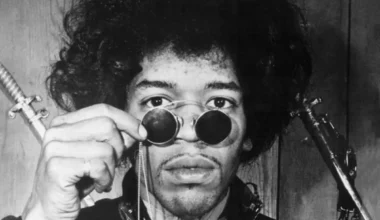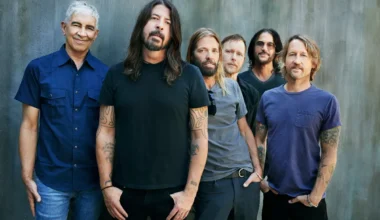No musical revolution happens in isolation, and the birth of heavy metal was no different. While Black Sabbath and Deep Purple played major roles in shaping the genre, Led Zeppelin was just as pivotal, setting the standard for powerful riffs, thunderous drumming, and raw vocal intensity. But despite their undeniable influence, Robert Plant wanted nothing to do with the metal scene they helped spawn—and one band, in particular, made him cringe.
When Zeppelin released their self-titled debut in 1969, rock music was forever changed. Their heavy, blues-infused sound was lumped into the broad category of “hard rock,” a term that covered everything from The MC5’s proto-punk to the experimental rock of Traffic Sound. Over time, however, the bands taking cues from Zeppelin’s sound evolved into what became known as heavy metal.
Yet, Zeppelin’s members always resisted the label. They saw themselves as a hard rock band, separate from the theatrical excess that would later define metal in the 1980s. As the genre exploded into the mainstream, it became more about image—big hair, leather, and over-the-top antics—than about raw, unfiltered music.
Plant, in particular, was horrified by what metal had become. In a 1988 interview, he singled out a poster of Judas Priest, one of the era’s biggest metal bands, and didn’t hold back. “If I’m responsible for this in any way, then I am really, really embarrassed,” he said.
For Plant, bands like Judas Priest represented everything wrong with the direction heavy metal had taken. He saw it as a hollow marketing gimmick, explaining, “Hard rock, heavy metal these days is just saying, ‘Come and buy me. I’m in league with the Devil—but only in this picture because after that I’m going to be quite nice, and one day, I’m going to grow up and be the manager of a pop group.’”
What frustrated him the most was the loss of authenticity. Zeppelin emerged from a countercultural movement, rejecting commercial gimmicks in favor of groundbreaking music. But by the ‘80s, metal had become a spectacle, prioritizing image over substance.
Unlike many of their peers, Zeppelin never chased trends or clung to nostalgia. After the tragic death of John Bonham in 1980, they walked away rather than compromise their legacy. While countless other bands continued with endless reunion tours and lackluster albums, Zeppelin refused to become a nostalgia act.
Led Zeppelin may have helped ignite the metal revolution, but Plant was quick to distance himself from its evolution. For him, the music was always the priority—not the theatrics, not the gimmicks. And if Judas Priest was any indication of what metal had become, he wanted no part of it.







